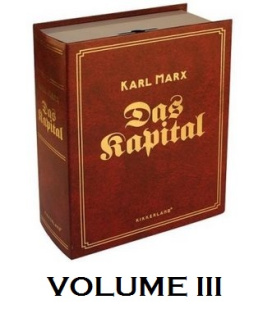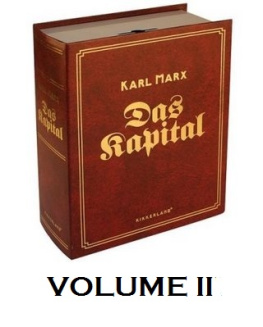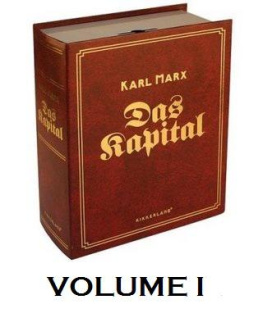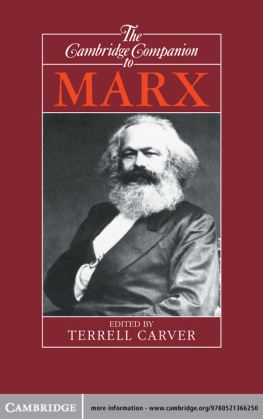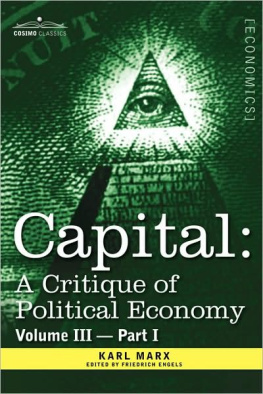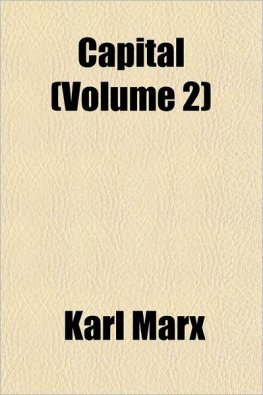Karl Marx - Capital Volume III
Here you can read online Karl Marx - Capital Volume III full text of the book (entire story) in english for free. Download pdf and epub, get meaning, cover and reviews about this ebook. year: 1894, genre: Romance novel. Description of the work, (preface) as well as reviews are available. Best literature library LitArk.com created for fans of good reading and offers a wide selection of genres:
Romance novel
Science fiction
Adventure
Detective
Science
History
Home and family
Prose
Art
Politics
Computer
Non-fiction
Religion
Business
Children
Humor
Choose a favorite category and find really read worthwhile books. Enjoy immersion in the world of imagination, feel the emotions of the characters or learn something new for yourself, make an fascinating discovery.
- Book:Capital Volume III
- Author:
- Genre:
- Year:1894
- Rating:4 / 5
- Favourites:Add to favourites
- Your mark:
- 80
- 1
- 2
- 3
- 4
- 5
Capital Volume III: summary, description and annotation
We offer to read an annotation, description, summary or preface (depends on what the author of the book "Capital Volume III" wrote himself). If you haven't found the necessary information about the book — write in the comments, we will try to find it.
Capital Volume III — read online for free the complete book (whole text) full work
Below is the text of the book, divided by pages. System saving the place of the last page read, allows you to conveniently read the book "Capital Volume III" online for free, without having to search again every time where you left off. Put a bookmark, and you can go to the page where you finished reading at any time.
Font size:
Interval:
Bookmark:
Works of Karl Marx
A Critique of Political Economy
Book Three: The Process of Capitalist Production as a Whole
Written: Karl Marx, 1863-1883, edited by Friedrick Engels and completed by him 11 years after Marx's death;
Source: Institute of Marxism-Leninism, USSR, 1959;
Publisher: International Publishers, NY, [n.d.]
First Published: 1894;
On-Line Version: Marx.org 1996, Marxists.org 1999;
Transcribed: in 1996 by Hinrich Kuhls, Dave Walters and Zodiac, and by Tim Delaney and M. Griffin in 1999;
HTML Markup: Zodiac 1996, Tim Delaney and M. Griffin in 1999;
Proofed and Corrected: by Chris Clayton 2006-7, Mark Harris 2010;
eBook prepared: by J Eduardo Brissos 2011.
PDF version.
Part I
The Conversion of Surplus-Value into Profit and of
the Rate of Surplus-Value into the Rate of Profit
Ch. 1:
Ch. 2:
Ch. 3:
Ch. 4:
Ch. 5:
Ch. 6:
Ch. 7:
Part II
Conversion of Profit into Average Profit
Ch. 8:
Ch. 9:
Ch. 10:
Ch. 11:
Ch. 12:
Part III
The Law of the Tendency of the Rate of Profit to Fall
Ch. 13:
Ch. 14:
Ch. 15:
Part IV
Conversion of Commodity-Capital and Money-Capital into Commercial
Capital and Money-Dealing Capital (Merchant's Capital)
Ch. 16:
Ch. 17:
Ch. 18:
Ch. 19:
Ch. 20:
Part V
Division of Profit into Interest and Profit of Enterprise.
Interest-Bearing Capital.
Ch. 21:
Ch. 22:
Ch. 23:
Ch. 24:
Ch. 25:
Ch. 26:
Ch. 27:
Ch. 28:
Ch. 29:
Ch. 30:
Ch. 31:
Ch. 32:
Ch. 33:
Ch. 34:
Ch. 35:
Ch. 36:
Part VI
Transformation of Surplus-Profit into Ground-Rent
Ch. 37:
Ch. 38:
Ch. 39:
Ch. 40:
Ch. 41:
Ch. 42:
Ch. 43:
Ch. 44:
Ch. 45:
Ch. 46: .
Ch. 47:
Part VII
Revenues and their Sources
Ch. 48:
Ch. 49:
Ch. 50:
Ch. 51:
Ch. 52:
Frederick Engels.
Supplement to Capital, Volume Three
A)
B)
C)
Study Guide
EXTERNAL LINKS: Political Economists |Original German language textat MLWerke |Economic Works
Letters on Capital |Marx/Engels Archive |Marxists Internet Archive
Capital Vol. III
At last I have the privilege of making public this third book of Marxsmain work, the conclusion of the theoretical part. When I published the secondvolume, in 1885, I thought that except for a few, certainly very important,sections the third volume would probably offer only technical difficulties. Thiswas indeed the case. But I had no idea at the time that these sections, the mostimportant parts of the entire work, would give me as much trouble as they did,just as I did not anticipate the other obstacles, which were to retardcompletion of the work to such an extent.
Next and most important of all, it was my eye weakness which for yearsrestricted my writing time to a minimum, and which, even now, permits me towrite by artificial light only in exceptional cases. Furthermore, there wereother pressing labours which could not be turned down, such as new editions andtranslations of Marxs and my own earlier works, hence reviews, prefaces,and supplements, often impossible without fresh study, etc. Above all, there wasthe English edition of the first volume of this work, for whose text I amultimately responsible and which consequently consumed much of my time. Whoeverhas in any way followed the colossal growth of international socialistliterature during the last ten years, particularly the great number oftranslations of Marxs and my own earlier works, will agree with me that Ihave been lucky that the number of languages in which I could be of help to thetranslators, and therefore could not refuse in all conscience to review theirwork, is very limited. But the growth of literature was merely indicative of acorresponding growth of the international working-class movement itself. Andthis imposed new obligations upon me. From the first days of our public activityit was Marx and I who shouldered the main burden of the work as go-betweens forthe national movements of Socialists and workers in the various countries. Thiswork expanded in proportion to the expansion of the movement as a whole. Up tothe time of his death, Marx had borne the brunt of the burden in this as well.But after his death the ever-increasing bulk of work had to be done by myselfalone. Since then it has become the rule for the various national workersparties to establish direct contacts, and this is fortunately ever more thecase. Yet requests for my assistance are still far more frequent than I wouldwish in view of my theoretical work. But if a man has been active in themovement for more than fifty years, as I have been, he regards the workconnected with it as a bounden duty that brooks no delay. In our eventful time,just as in the 16th century, pure theorists on social affairs are found only onthe side of reaction and for this reason they are not even theorists in the fullsense of the word, but simply apologists of reaction.
In view of the fact that I live in London my party contacts are limited tocorrespondence in winter, while in summer they are largely personal. This fact,and the necessity of following the movement in a steadily growing number ofcountries and a still more rapidly growing number of press organs, havecompelled me to reserve matters which permit no interruption for completionduring the winter months, and primarily the first three months of the year. Whena man is past seventy his Meynerts association fibres of the brainfunction with annoying prudence. He no longer surmounts interruptions indifficult theoretical problems as easily and quickly as before. It came abouttherefore that the work of one winter, if it was not completed, had to belargely begun anew the following winter. This was the case with the mostdifficult fifth part.
As the reader will observe from the following, the work of editing the thirdvolume was essentially different from that of editing the second. In the case ofthe third volume there was nothing to go by outside a first extremely incompletedraft. The beginnings of the various parts were, as a rule, pretty carefullydone and even stylistically polished. But the farther one went, the more sketchyand incomplete was the manuscript, the more excursions it contained into arisingside-issues whose proper place in the argument was left for later decision, andthe longer and more complex the sentences, in which thoughts were recordedin statu nascendi. In some places handwriting and presentation betrayedall too clearly the outbreak and gradual progress of the attacks of ill health,caused by overwork, which at the outset rendered the authors workincreasingly difficult and finally compelled him periodically to stop workaltogether. And no wonder. Between 1863 and 1867, Marx not only completed thefirst draft of the two last volumes of Capital and prepared the firstvolume for the printer, but also performed the enormous work connected with thefounding and expansion of the International Workingmens Association. As aresult, already in 1864 and 1865 ominous signs of ill health appeared whichprevented Marx from personally putting the finishing touches to the second andthird volumes.
I began my work by dictating into readable copy the entire manuscript, whichwas often hard to decipher even for me. This alone required considerable time.It was only then that I could start on the actual editing. I limited this to theessential. I tried my best to preserve the character of the first draft whereverit was sufficiently clear. I did not even eliminate repetitions, wherever they,as was Marxs custom, viewed the subject from another standpoint or atleast expressed the same thought in different words. Wherever my alterations oradditions exceeded the bounds of editing, or where I had to apply Marxsfactual material to independent conclusions of my own, if even as faithful aspossible to the spirit of Marx, I have enclosed the entire passage in bracketsand affixed my initials. Some of my footnotes are not enclosed in brackets; butwherever I have initialled them I am responsible for the entire note.
Font size:
Interval:
Bookmark:
Similar books «Capital Volume III»
Look at similar books to Capital Volume III. We have selected literature similar in name and meaning in the hope of providing readers with more options to find new, interesting, not yet read works.
Discussion, reviews of the book Capital Volume III and just readers' own opinions. Leave your comments, write what you think about the work, its meaning or the main characters. Specify what exactly you liked and what you didn't like, and why you think so.

